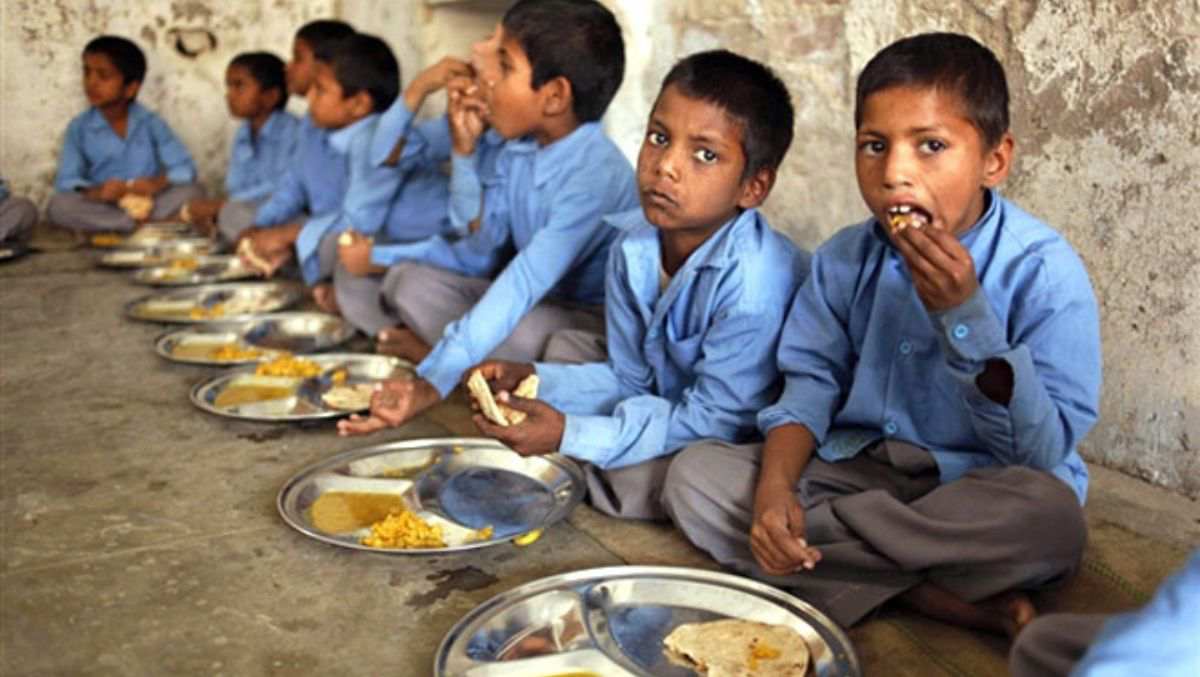Less money for the “midday meal” in 2024 due to an increase of pupils
According to social activist, this will have an impact on the quantity and quality of meals provided in schools.
The revised allocation of Rs 12,800 crore for 2022–2023 has been reduced to Rs 11,600 crore for the PM-Poshan plan, formerly known as the Mid Day Meal programme.
The revised allocation of Rs 12,800 crore for 2022–2023 has been reduced to Rs 11,600 crore for the PM-Poshan plan, formerly known as the Mid Day Meal programme.
Save image as
Posted by Our Special Correspondent in New Delhi on February 23, 2003 at 3:13 AM
Despite an increase in enrollment at government schools, the budget’s allocation for the school lunch programme has been lowered from the revised amount from the previous year.
The revised allocation of Rs 12,800 crore for 2022–2023 has been reduced to Rs 11,600 crore for the PM-Poshan plan, formerly known as the Mid Day Meal programme.
The total amount allotted to the education sector increased to Rs 1.13 lakh crore from Rs 1.04 lakh crore in 2022–2023.
Approximately 11 lakh government schools provide a free lunch to approximately 10 crore students enrolled in Classes I through VIII on days when the schools are open.
Numerous studies have shown that the programme can reduce hunger in the classroom, improve students’ focus during class, and boost enrollment. Rao claimed that since more students are enrolled in government schools, the allotment ought to have been raised.
People’s real incomes have decreased, especially those of the working class. Ideally, the government would have strengthened the programme. As per the most recent Annual Status of Education Report 2022, the percentage of children aged 6 to 14 who are enrolled in government schools increased from 65.6% in 2018 to 72.9% in 2022.
The noon meal plan received a budget allocation of Rs 10,234 crore in 2022–2023; however, the revised budget boosted this amount to Rs 12,800 crore.
“The necessity led to an increase in the allocation. At the very least, the allocation for this year ought to have adhered to the amended budget, according to Rao.
An email requesting his department’s viewpoint on the matter was written to school education secretary Sanjay Kumar; a response is pending.
The PM School for Rising India (PM-SHRI) plan, which intends to establish over 15,000 schools of excellence in over 7,000 blocks, has been allocated Rs 4,000 crore to the education sector.
It will be expected of these schools to offer top-notch instruction in a welcoming and happy atmosphere, setting an example for other schools in the vicinity. While the sector was allotted Rs 40,828 crore the previous year, the higher education sector has received Rs 44,094 crore.
The IIMs’ funding has been significantly reduced, going from Rs 653 crore to Rs 300 crore this year.
100 labs will be built up at engineering schools to build applications using 5G services, spanning smart classrooms, precision farming, intelligent transportation systems and health care applications, according to Finance Minister Nirmala Sitharaman.
For kids and teenagers, there will be a National Digital Library established.




